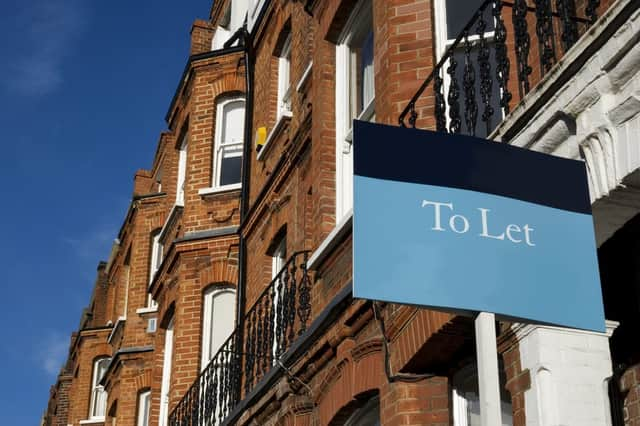Landlords are now banned from charging all renters for viewings, credit checks and more - and you can claim your money back


Landlords and letting agents are now banned from charging renters illegitimate tenancy fees, following a new change in the law.
The legislation (which came into force on 1 June 2020) protects renters from being charged for viewings, credit checks, renewal fees and gardening services, among others.
What does it mean for renters?
Advertisement
Hide AdAdvertisement
Hide AdThe Tenant Fees Act was initially introduced on 1 June 2019, and abolished fees for more than five million renters in England by making the like of references, inventories and credit checks illegal on all contracts.
However, the Act only applied to new tenancy agreements, meaning renters who signed a contract before this date were not protected. The new change in the law now means all renters are included, giving people more rights over agreements on their home.
As well as a ban on tenancy fees, landlords cannot charge more than five weeks’ worth of rent for a deposit on a property under the new rules.
If renters paid more than this for their deposit, they now have the right to request a refund on any funds that exceed five weeks of rent.
Advertisement
Hide AdAdvertisement
Hide AdAdditionally, tenants no longer have to pay for credit references and guarantor requests.
Private renters paid £13 million in letting fees
Before the Act came into force, landlords and letting agents were able to charge unlimited amounts for fees, with private renters in England estimated to have been paying £13 million a month in letting fees, according to Citizen’s Advice.
Now, with the Act enforced, it is expected to save tenants across England around £240 million per year, or £70 per household.
If landlords or letting agents breach the rules of the Tenant Fees Act, they could face a fine of up to £5,000.
Advertisement
Hide AdAdvertisement
Hide AdTwo or more breaches in a five year period will be classed as a criminal offence, and could lead to prosecution, or a fine of up to £30,000.
What fees have been banned?
As of 1 June 2020, landlords and letting agents are no longer allowed to charge any tenant fees for the following:
- Property viewings
- References and credit checks
- Insurance policies
- Guarantor requests
- Renewal costs
- Professional cleaning fees
- Gardening costs
Which fees have been capped?
- Leaving your tenancy early - now capped at the amount of rent you would have paid until the end of your tenancy
- Holding fees - now capped at one week's rent and then must be refunded once you've signed the agreement
- Contract changes - now capped at £50
Advertisement
Hide AdAdvertisement
Hide Ad- Late payments - now capped at three per cent more than the Bank of England base rate for every day the payment is late, providing late payment charges are written into your contract
- Deposit - now capped at five weeks worth of rent
What can my landlord still charge me for?
Your landlord or letting agent is still able to charge you for the following:
- Rent
- A tenancy deposit
- A holding deposit
- Replacing lost keys
- Any changes you request to your contract
- Any requests to terminate your contract early
- Utility bills, such as water, broadband, TV licence and council tax
- Late rent payments (after 14 days)
- Replacements for lost keys